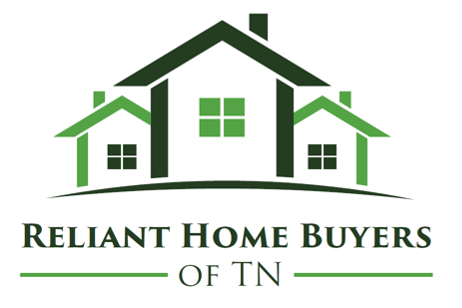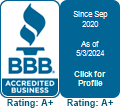Call Justin Today! (865) 345-2440
Selling a House in Probate: How Does it Work?
Selling a house is a stressful process. Add on the pressure of a recently deceased family member and inherited property and the situation gets even more complicated. Selling a house in probate isn't easy, but we want to help make the process a bit easier to understand.
A will isn't required to go through probate, however, there are instances where it's necessary for beneficiaries to inherit property.
If you're considering selling during probate, it's important to know what steps you need to take.
Here's how selling a house in probate in Knoxville, TN works and what your options are.
What Is Probate?
Probate is the legal process of validating a will once a person (the decedent) has died. The process of probate includes establishing if a will is valid, appraising the decedent's property, and paying off debts. While a will, or testament, won't necessarily prevent probate, it can guide the process - making it easier.
Probate is also applicable when there is no will. In this case, a probate court must decide how to distribute the decedent's assets.
What Is Probate Court?
Probate court is where the person named in the will (the executor) has a judge verify the decedent's intentions. If there is no will, the judge will assign an administrator to manage the estate. The executor decides to rent out, live in, or sell the property.
If anyone contests the will, the paperwork will be done in probate court. All contests will also be resolved with a probate court hearing.
How Does Probate Work?
After being named, the executor or administrator must carry out multiple tasks, including:
- Acquiring the death certificate
- Informing beneficiaries
- Paying debts, taxes, or other expenses
- Identifying and distributing assets
Each of these documents is compiled in a probate packet associated with settling an estate. In general, probate reflects the following steps:
- A petition is filed in probate court. If the executor (or administrator) hasn't already been named, the probate judge will appoint one. A Notice to Creditors is then published in a local newspaper.
- Creditors will have 120 days to submit claims. The executor will label the decedent's property and, if needed, have it appraised.
- Any debts or taxes owed by the decedent are paid by the estate. Once the 120 days have expired, all proceeds are allocated and the probate file is closed.
- Any other assets are distributed, according to the decedent's will or state law.
How Long Does Probate Take?
In Tennessee, the probate process takes about six months to a year. Several factors can affect how long probate takes, including the state the decedent lived in, what the assets are, and whether anyone disputes the probate petition.
When Is Probate Not Necessary?
When the decedent dies, their property is divided into two groups. The first group of assets is passed directly to the executor or co-owner.
These assets are generally not subject to probate:
- Trust property (assets held in trusts)
- Co-owned real estate (with a surviving joint-tenant)
- Proceeds of life insurance policies
- Payable-on-death bank accounts
- Retirement and pension accounts
When Is Probate Required?
Probate is complicated. It's usually needed when there isn't a will if there are problems with the will, and even to carry out terms of a valid will. It's also required if the deceased has unpaid debts that need to be paid off. That said, probate isn't always required in each of those situations. Probate may be necessary if a person has inherited personal possessions (money, cars, etc.) or real estate. The second group of assets may be handed down through a will or state law. Assets that go through the probate process are referred to as "probate estate."
For instance, If the decedent owned any property in their name (without co-owners) it's likely the property would need to be probated to include the names of the decedent's beneficiaries. In many cases, probate is necessary with or without a will. Without the probate process, the executor is unable to take legal ownership of these assets.
How Much Does Probate Cost?
The cost of probate can range from 3-8% of an estate's value. Additional costs may include...
- Court costs - In most states, court fees are unavoidable and can exceed thousands of dollars, depending on the size of the estate. In Tennessee, court costs are around $500.
- Executor fees - Executor fees are an optional cost needed to settle an estate. Tennessee uses reasonable compensation, which means the amount paid is decided by the probate court.
- Probate bond fees - Bond fees are based on the value of an estate. In some situations, the executor is required to get a probate bond before they're able to manage a property.
- Attorney fees - Hiring a probate attorney is not required, however, some states require an attorney to represent an estate. In this case, the estate will pay the attorney's fees. Attorney fees will vary depending on the state.
What Is the Process for Selling a House in Probate?
Selling a house in probate involves filing spare documents with the probate court and receiving all necessary approval. While processing may differ from case to case, selling inherited property is accomplished through a formal or informal probate process.
Formal Probate Process
If there is no legal will, there's disagreement over the contents of the will, or it's difficult to determine who the heir should be, the property will go through formal probate. This means the probate court will have total control of the selling process. The executor may also need to hire a probate attorney to help with having a house appraised and working through each step of the formal probate process.
With formal probate, the court requires a property to sell for at least 90% of its appraised value. After this, the executor must petition the court to begin the selling process. Once complete, the executor has permission to formally sell the house, however, the sale must be listed as a probate sale.
Selling a House in Formal Probate
There are a few steps to selling a house in formal probate:
- Buyers must submit an offer with a 10% deposit, and the property must sell for at least 90% of its appraised value.
- The offer, which may be refused by the seller, must also be approved by the probate court. If both accept, a date is set to complete the sale in court.
- Once this offer is approved by both the court and the administrator of the home, a letter is mailed out to all of the other beneficiaries. This allows them to object to the sale of the house in probate.
- If everyone agrees on the sale of the house, it can proceed without a probate court hearing.
Informal Probate Process
Informal probate is used when there is an uncontested, valid will. If there are any questions or disputes around the validity or contents of a will, you'll have to go through the formal probate process.
Informal probate is reserved for those included in the decedent's will. For instance, if a house was co-owned before the decedent's death, the co-owner may be assigned informal probate. This means the executor will have fewer steps in the probate process. In addition, an attorney is not required for informal probate sales.
To sell a house in informal probate, the executor will need to file several documents, including the decedent's will. The probate court will publish Letters of Testamentary, which allow the executor to control an estate's property (real estate, bank accounts, etc.). As a result, the executor will list the house for sale, without the probate court.
How to Sell a House in Probate in Tennessee
If you're an administrator or a beneficiary, the process of probate can be stressful. Not only have you recently inherited property but you're also forced to elect what's next for an estate.
And in the case of inheriting a house that needs repairs, you're left with fewer options. While listing your home with a realtor is possible, you'll need to consider what needs to be fixed and how much repairs will cost. If the cost to repair the inherited property is too high, consider selling to a local real estate investor such as Reliant Home Buyers of TN.
Reliant Home Buyers of TN specializes in buying houses in probate. While we are not attorneys, we know enough about probate requirements to answer your questions. We also have the expertise to let you know if you need to hire an estate attorney to help you through the probate process.
Here's how our home buying process works:
- We'll View the House - Call us or submit a contact form, to schedule an evaluation of your property. Our home buyers will take 15-30 minutes to appraise the potential of the house. Additionally, we'll also provide a list of potential updates and their cost, if you decide to sell with a retail buyer.
- Make a WIN-WIN Proposal - Once we've assessed the property, we'll form a WIN-WIN proposal. Our simple, one-page contract includes an all-cash selling price and a closing date. If you decide to not sell with us, there's no obligation at any time.
- Sell Your House in Probate - If you sign the one-page contract, we'll take it to a local title company for processing. In most cases, you will not need to hire an estate lawyer, however, a title company will have staffed lawyers to make sure you have the required documents. Once everything is cleared, you'll receive a check for your inherited property.
Does Inherited Property Always Have to Go Through Probate?
No, inherited property from a recently deceased loved one does not always have to go through probate. We mentioned a few reasons probate may be necessary above, but if you're still unsure we can help. Our experienced home buyers can answer your questions and help you determine if going through probate and hiring an attorney is necessary or not.
We Buy Probate Houses in Knoxville, TN
We understand that the probate process can be intimidating. That's why we're committed to working with your situation. Reliant Home Buyers of TN buys houses in Knoxville, TN and surrounding areas, including Knox, Blount, Anderson, Loudon, Jefferson, McMinn, Sevier, Monroe, Cumberland, and Hamblen counties.
Contact us or call us at (865) 567-6391 to receive a FREE cash offer!
Navigation:
Contact:
-
- PO Box 23725
Knoxville, TN 37933
- PO Box 23725
Serving Knox, Blount, Loudon, Anderson, Roane, Sevier, Union, Jefferson, Hamblen, Cumberland, Monroe, and McMinn Counties.

